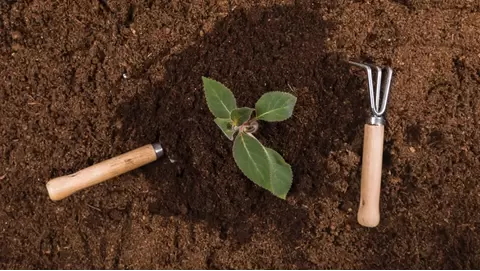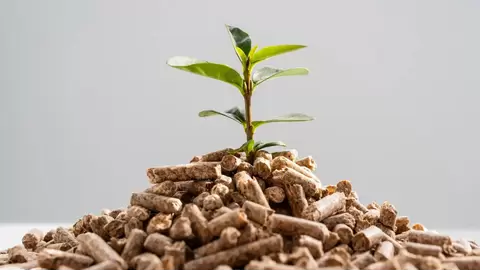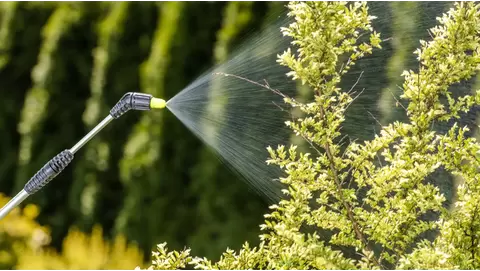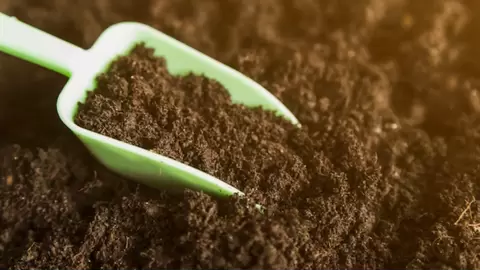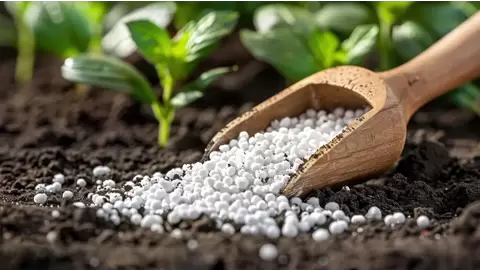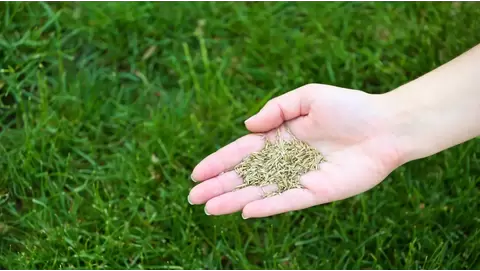
Precision Nutrient Management for Optimized Crop Growth
Soil's reproducible integration of nutrients is the basis for high-performance crops in modern agriculture. It is a holistic approach to crop nutrition to allow plants to get the right nutrients, at the right time in the right quantities and go beyond the typical fertilization. Doing this not only optimizes crop yields but also improves soil biome and encourages long-term sustainability by minimizing waste and overall environmental impact.
- What: Precision crop management ensures crops receive the exact nutrients they need at the right time, improving soil health, boosting yields, and reducing the environmental footprint.
- Best For: Farmers, agronomists, and growers who want to maximize crop yield, improve nutrient-use efficiency, and manage sustainable agriculture effectively.
- Key Players Providing:
- Phive8: A synthetic substance derived from natural compounds that stimulates soil bioactivity, enhancing regeneration faster than typical organic processes.
- Organics Alive: A wide range of microbial-active fertilizers that amplify soil microbiome robustness and promote healthy plant growth.
- EZ-FLO: Precision fertigation systems for automated and efficient nutrient delivery.
- Geoponics: Solutions for sustainable soil fertility and nutrient ergonomics, from soil management to large-scale systems.
- Nutes Nutrients: Premium plant nutrition solutions for every growth stage.
- Pro Tip: Implement precision crop management strategies to enhance soil health and maximize long-term agricultural productivity.
Industry leaders like Phive8, Orgnics Alive, EZ-FLO, Geoponics, and Nutes Nutrients are leading the way with solutions that are revolutionizing the world of plant nutrition for the farmer and grower. These companies are on the cutting edge of creating organic-based fertilizers, biologically active amendments, advanced fertigation systems, and innovative soil conditioning technologies that promote more efficient, sustainable and productive farming.

As growers aiming to apply nutrient offsets come of age, it has become increasingly evident that precision nutrient management techniques are at the forefront of crop production technology and play vital roles in improving crop growth, resource use efficiency and environmental protection.
The Science Behind Precision Nutrient Management
At the heart of precision nutrient management is a robust understanding of plant biology and soil chemistry. It relies on high-tech solutions and data-driven insights to deliver nutrients precisely when and where they are needed. This is so it can offer the right resources to plants to ensure their growth whilst wasting the least amount of water and minimizing pollution to the environment as much as possible. What makes it absolute is that it is based on manipulating the soil, nutrients, biology, and plant insights.
Understanding The Nutrient Requirements Of Plants
A plant grew stronger if you were aware of these basic nutrients and you provided it with the right mix. Nutrient requirements vary depending on the plant species, growth stage, and environmental conditions. There are two categories of essential nutrients:
- Macronutrients: They are called macronutrients because they are required in larger quantities
- Micronutrients: Are needed in smaller quantities but are just as vital for plant growth.
This knowledge allows farmers to figure out the proper nutrient content for each crop, increasing yield and plant health accordingly.
How to Balance Macronutrients and Micronutrients for Plant Growth
Macronutrients—nitrogen, phosphorus, and potassium—are the essentials for plant growth, powering processes such as photosynthesis and root development. But micronutrients such as iron, manganese, zinc, etc, have an important role in the activation of enzymes and are also involved in the metabolism of plants.
Finding this balance between these two groups is key to healthy plants. Overabundance in one area can inhibit the uptake of another, resulting in nutrient imbalances that can stunt growth or even kill plants. Precision nutrient management systems eliminate guesswork with this balance by supplying custom nutrient plans, ensuring plants have macronutrients and micronutrients available in the right proportions.
The Importance of Soil Health in Food Nutrient Absorption
Soil has the greatest effect on nutrient uptake. Healthy soil properties contain a healthy amount of microbial activity, which is key to breaking down organic material and making nutrients available to plants. Soil structure also affects nutrient uptake. In well-aerated soil, it is easier for roots to access nutrients, whereas soil that is compacted can prevent nutrient uptake.
By improving soil health using organic amendments, proper irrigation practices, and biological soil conditioners, farmers can significantly increase the efficiency of nutrient absorption. The usage of this method not only helps to increase the productivity of crops but also increases the fertility of soil in the very long run, making it sustainable.
Innovative Approaches to Nutrient Delivery
People have advanced across modern agriculture with state-of-the-art innovations and approaches to deliver nutrients. Maximizing efficiency, minimizing waste, and promoting plant health is the goals. As agricultural methods become increasingly sophisticated, nutrient delivery systems are being tailored to the requirements of specific crops and soil types, as well as environmental considerations. Farmers have access to everything from precision agriculture technology to biostimulant nutrient solutions to help feed their crops smarter.
Soil Application vs. Foliar Application: What is Best for You?
Both soil and foliar applications have their own unique advantages, and the method of application depends on a variety of factors, the type of plant and its specific nutrient needs. Soil application — release over time, stimulates deep roots. It’s ideal for macronutrients like nitrogen, phosphorus, and potassium.

Foliar application, on the other hand, entails spraying nutrients on the leaves of the plant for instant uptake. This can be the preferred approach for micronutrients or in periods of stress when plants require an immediate hit of nutrition. Both methods have a role in proper nutrient management, and the trick is to know when and how to apply them effectively.
Sustainable Agriculture and Organic Amendments
Organic amendments that improve soil structure, health, and nutrient retention and therefore agricultural sustainability include compost, biochar, and manure. In contrast to synthetic fertilizers, organic amendments contribute to soil ecology by introducing and sustaining beneficial microorganisms, improving soil water retention and nutrient cycling.
These amendments make a living soil ecosystem that keeps plants growing well, but prevents them from rushing to strip wealth from the earth. Adding organic practices into nutrient delivery systems can improve soil structure, increase biodiversity and lessen dependence on chemical inputs for farmers. This is essential for the sustainable co-existence of agriculture and our ecosystems.
Phive8: Revolutionizing Nutrient Absorption
Phive8 provides a holistic blend of organic-based nutrients that help maximize plant growth in each part. These natural ingredients enhance nutrient uptake, helping this product ensure that your plants are getting everything they can from their soil. The outcome is healthier, stronger crops and increased yields.
- Plants can benefit from it as well, as it enhances the absorption of nutrients and promotes healthier crops with more vitality.
- Improved metabolism of the plant allows for better nutrient uptake and stress fighting.
- Stress tolerance helps crops cope with stressful environmental conditions like drought or pest attack.
- Sustainability offers diverse pathways to healthy soil in the long run for both organic and conventional growers.
Orgnics Alive: Leading the Way in Organic Nutrient Technology
Orgnics Alive is redefining organic nutrients and how plants are grown. Their biologically active fertilizers contain thousands of beneficial microbes that naturally increase soil health, nutrient availability, and vigorous plants. By providing such an organic way to nourish plants, this one-of-a-kind method makes sure plants receive their nutrients in the most nature-friendly and sustainable manner.
Orgnics Alive's endeavours are grounded in the importance of the health of the soil microbiome. These fertilizers stimulate and perpetuate beneficial microorganisms in the soil, which in turn support plants, improving growth, nutrient uptake, and disease resistance. Orgnics Alive is a must-have for growers who want to establish a healthy growth environment.
Adding organic nutrients sounds like a big challenge with precision farming, but it doesn’t have to be complicated. Organics Alive makes it easy. Their products are targeted to work with high-tech farming methods. With Orgnics Alive, farmers can finally have the best of all worlds: an organic alternative with the strong efficacy of a modern farm system.
EZ-FLO: Precision Fertilization for Maximum Efficiency
EZ-FLO automatic fertigation systems are the solution for farmers wanting to maximize nutrient delivery. Through these systems, nutrients are specifically delivered to plants at the appropriate amount and at the right time, minimizing the risk of nutrient runoff and over-fertilization. EZ-FLO automates the process of fertilization and removes human error.
EZ-FLO’s systems are especially beneficial because there is less waste, which equates to the highest yield per crop. By applying the proper nutrients exactly where they’re needed, the system keeps excess runoff to a minimum, conserving both water and nutrients. It leads to healthier crops, better yields, and more sustainable agriculture.
Geoponics: Enhancing Soil Health and Nutrient Efficiency
Geoponics is the holistic pioneer of soil health and nutrient utilization. The company's soil surfactants and soil remediation products are key to achieving these soil quality goals. These solutions also aid in breaking up compacted soil and offer water retention, allowing plants to uptake nutrients more effectively.
Besides, Geoponics also has some products, like Agriox, which increases the soil oxygen level, and Detox, which decreases the soil salinity, focus on long-term soil fertility so that the plants would grow well in the long term. The company’s soil conditioners are also positioned to enhance irrigation efficiency, minimizing water waste while ensuring that nutrients are appropriately provided to the plant roots as part of healthier and more vigorous growth.
Nutes Nutrients: High-Performance Plant Nutrition
If you are looking for a high-performance plant nutrition that caters to plants' needs in every phase, you can trust Nutes Nutrients because of its unique formulations. By tailoring Nutes' products to meet the individual needs of the plants, the science provides the building blocks for healthy plants, like seedlings and mature plants.
From rooting to producing, their product line is specifically formulated for each step of the growth process. Apart from their staple products, Nutes also produces specialty supplements, such as Silica Trich Rush and Cal-Magnum, which are crucial for ensuring plant resiliency and enhancing overall performance. These products are an important piece of smart nutrient management, which enables our growers to achieve more excellent plant health and higher yields.
FAQs
1. Precision Nutrient Management: What Is It and Why Is It Important?
Precision nutrient management is a strategic way to manage crop nutrition, drenching plants with the right nutrients and avoiding excesses at every stage of plant growth. This approach optimizes plant health, increases crop yields, cuts nutrient waste, and lowers environmental impact.
2. How does soil health affect nutrient absorption?
The conditions that stimulate microbial activity promote healthy soil and its well-structured composition, as this contributes to the availability and uptake of nutrients. Soil deficiencies, including compacted soil or imbalanced nutrients, may also hinder root development and the absorption of nutrients.
3. How do slow-release fertilizers differ from liquid nutrients?
Granular slow-release fertilizers supply nutrients gradually over a long time, which also minimizes nutrients being lost and wasted. Liquid feeds, on the other hand, are available the moment the plants need them and are great if you need to quickly correct nutrients or during faster-growing phases. Some farmers then use a mix of these two for nutritional balance.
Conclusion
Food production is changing, using precise nutrient management and eco-friendly farming methods. Companies such as Phive8, Orgnics Alive, EZ-FLO, Geoponics and Nutes Nutrients can be used to enhance crop yield production with no negative impact on the ecosystem. It enables farmers to grow nutritious, high-yield crops while ensuring soil fertility through advanced nutrient delivery systems and organic soil amendments.
Soil testing and the development of site-specific nutrient management strategies can help people achieve a higher nutrient use efficiency and reduce nutrient loss from the field crops. Farmers who practice conservation tillage or other conservation practices can build organic matter in the soil, which feeds the soil and results in better crops. Selecting an appropriate nutrient source based on the soil properties contributes to sustainable agriculture and soil fertility in the long term.
Disclaimer: This material is for informational purposes only and should not be relied on for legal, medical, financial, or other professional advice.
Sources:
The Ohio State University- Micronutrients
UNIVERSITY OF CALIFORNIA, Agriculture and Natural Resources- Crop Nutrient Requirements










